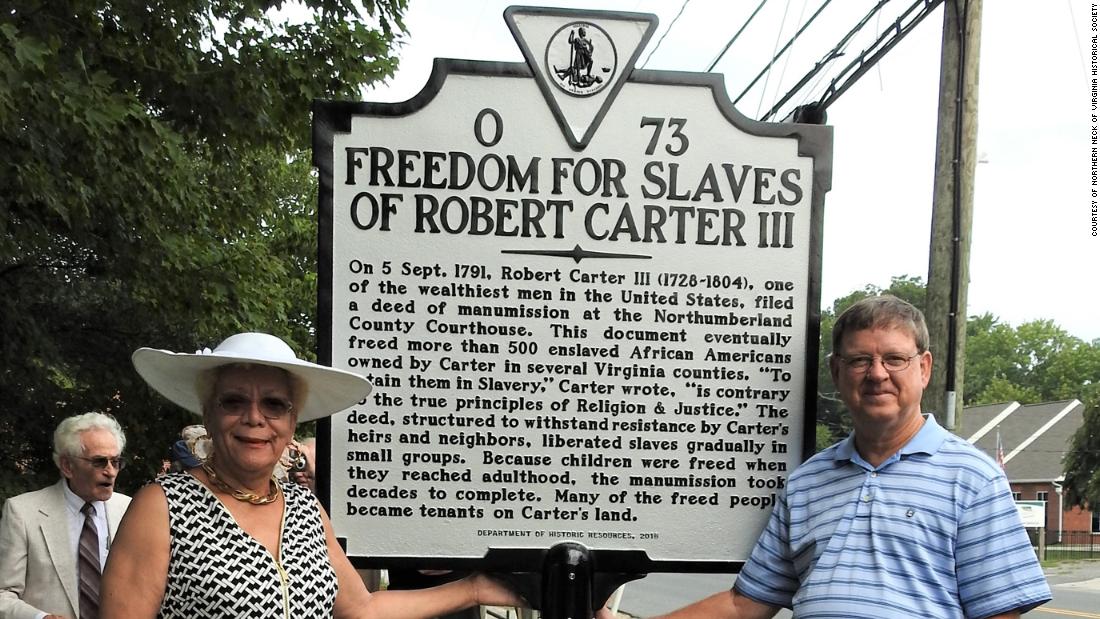Many slaveholders, including Thomas Jefferson and James Madison, knew slavery was wrong, they just didn’t know how to move beyond it. As Jefferson wrote in 1820, “As it is, we have the wolf by the ear, and we can neither hold him, nor safely let him go. Justice is in one scale, and self-preservation in the other.” Such was the case for inaction.
But one man did act, freeing 511 slaves beginning with a “deed of gift” on September 5, 1791. He was not the only one — Jefferson did free 10 during his lifetime — but this was the largest liberation before the presidency of Abraham Lincoln. And he did it in a way so these freedmen could sustain themselves and integrate into society. Call it a blueprint for emancipation.
That man was Robert Carter III, one of the wealthiest men in Virginia. George Washington’s half-brother, Lawrence, James Madison and Thomas Jefferson were among his friends. You’ve never heard of him? Maybe that’s because he shunned attention (he’s buried in an unmarked grave). Or perhaps because he wasn’t an accomplished politician. Or simply because his action threatened the very foundation of the region’s economy — one neighbor threatened to burn his home.
In any event, Carter is not forgotten among the descendants of the people he freed. Thanks to them, he will continue to be remembered.

For more information, see “Like Washington and Jefferson, he championed liberty. Unlike the founders, he freed his slaves” by Eliot C. McLaughlin of CNN (https://www.cnn.com/2021/09/05/us/robert-carter-iii-deed-of-gift-slavery-anniversary/index.html?).
